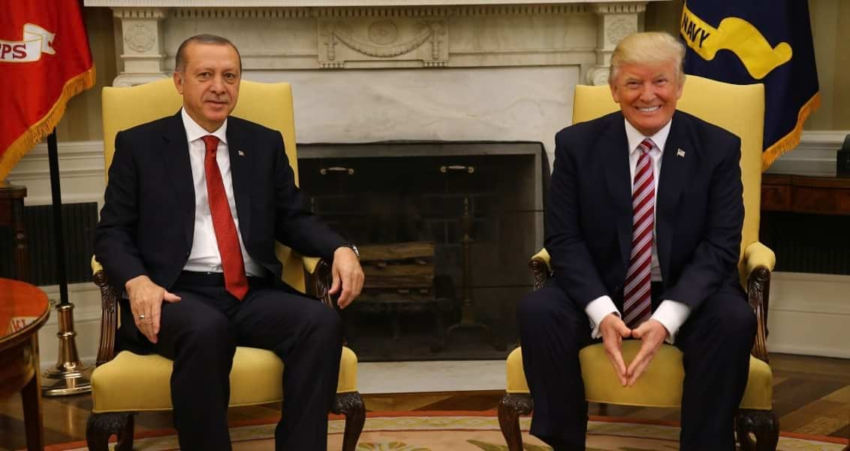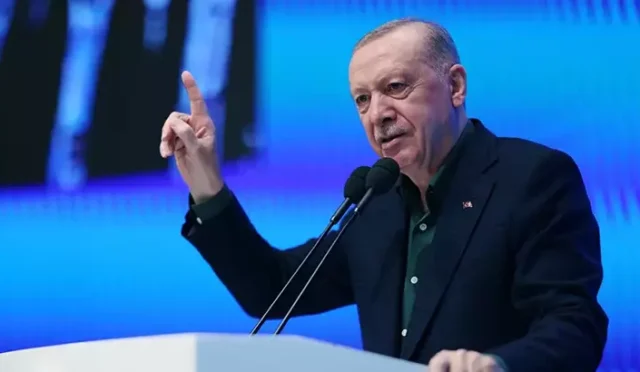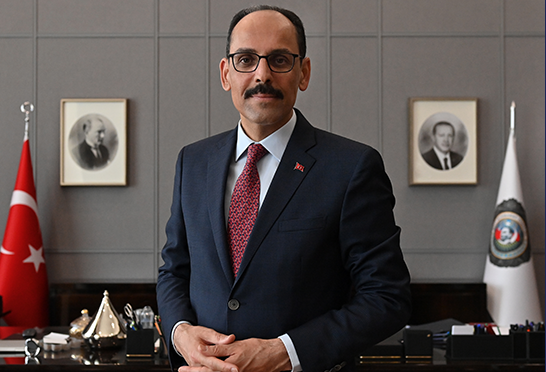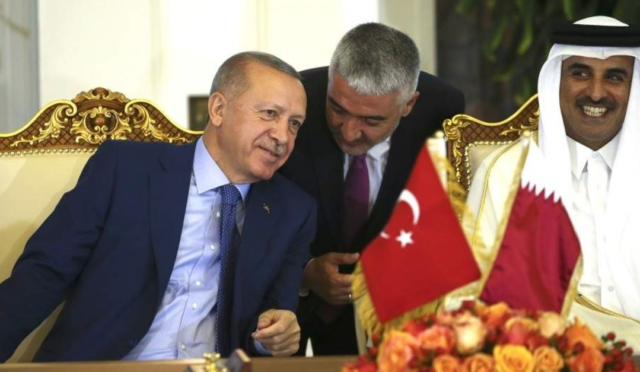Erdoğan and Trump Discuss Strengthening Bilateral Ties
**President Recep Tayyip Erdoğan engaged in a significant phone call with U.S. President Donald Trump on March 16.** During this conversation, Erdoğan underscored the necessity for both nations to collaborate on key issues that would bolster their relationship, particularly in the realm of defense. A statement from the Directorate of Communications highlighted Erdoğan’s call for the U.S. to take steps that align with Turkey’s interests, especially in the fight against terrorism.
The Turkish President emphasized the urgent need to address three critical areas: the lifting of CAATSA sanctions, completing the procurement of F-16 aircraft, and Turkey’s reinstatement into the F-35 program. Resolving these issues is essential to enhancing defense cooperation between the two allies.
U.S. Shifts Position on F-35 Following Turkish Developments
On a related note, Turkish Minister of National Defense, Yaşar Güler, provided updates on Turkey’s defense initiatives during discussions about the 2025 budget within the Grand National Assembly on November 26, 2024. Güler noted that the U.S. stance on the F-35 program had shifted positively, particularly after Turkey successfully test-flew its locally produced KAAN aircraft.
He stated, “With respect to the F-35, we currently maintain six aircraft in the U.S. There seems to be a change in the Americans’ outlook now that we have demonstrated our capability in developing the KAAN fighter. They are showing willingness to revisit the F-35 provision for Turkey.” This reflects a growing sense of partnership between the two countries.
Turkey Seeks Full Participation in F-35 Program
In response to questions about Turkey’s future role in the production of the F-35, Minister Güler asserted, “We are insisting on the return of our production shares and expressing the desire to acquire a total of 40 F-35 jets.” This sentiment was reiterated in the context of rebuilding trust and collaboration after previous tensions.
The need for Turkey to re-establish its place in the F-35 program underscores the evolving dynamics of U.S.-Turkey relations and highlights Turkey’s capabilities in the defense sector.
Aims for Collaborative Efforts Against Global Challenges
The Erdoğan-Trump discussion further delved into broader bilateral relations, addressing not only military cooperation but also regional and global contexts. President Erdoğan conveyed his strong belief that Turkey and the U.S. could navigate challenges more effectively together as allies, focusing on results-driven and sincere collaborations.
Moreover, statements from the Turkish Presidency emphasized that the turbulent regional and global developments necessitate increased dialogue between Turkey and the U.S. They also voiced support for President Trump’s initiatives aimed at effectively addressing the ongoing conflict between Russia and Ukraine.
Commitment to Peace and Stability in Syria
Throughout the dialogue, Erdoğan stressed the importance of working together to lift sanctions on Syria as a means of restoring stability in the region. He articulated that enabling the new Syrian administration to operate effectively would help normalize conditions, consequently facilitating the return of displaced Syrians to their home country.
This perspective on cooperation highlights Turkey’s proactive approach to regional security, aiming for a sustainable resolution that benefits not only Syria but its neighbors as well.
Understanding CAATSA: A Look at Recent Sanctions
The Countering America’s Adversaries Through Sanctions Act (CAATSA), enacted on August 2, 2017, introduced sanctions targeting adversaries such as Iran, Russia, and North Korea. Although initially intended to penalize countries for military dealings, Turkey faced scrutiny after acquiring the S-400 missile system from Russia.
The U.S. has historically been hesitant to enforce these sanctions against Turkey; however, the situation escalated in December 2020 when the Treasury announced measures against Turkey’s defense industry, including senior officials from key organizations.
Impact of CAATSA Sanctions on U.S.-Turkey Relations
As further developments unfolded, the U.S. Senate approved the 2021 National Defense Authorization Act, which included a $740 billion defense budget while also integrating provisions to sanction Turkey and halt the delivery of F-35 jets. This introduced a period of tension in U.S.-Turkey relations, largely propelled by defense-related issues.
In light of these sanctions, the conversation between Erdoğan and Trump represents a crucial juncture, as both leaders seek to mend ties and navigate the implications of previous actions on cooperation in the defense sector.
Looking Ahead: Opportunities for Rebuilding Alliances
The ongoing dialogue signifies an opportunity for Turkey and the United States to recalibrate their approach to cooperation, particularly in defense. Both nations recognize the necessity of adapting to new geopolitical realities, which require close consultations on bilateral and regional matters.
The Erdogan-Trump exchange illustrates a commitment to enhance dialogue and collaboration, with implications for future interactions on pressing global issues.
Fostering Solutions through Mutual Cooperation
In conclusion, both leaders showcased a commitment to tackle challenges collectively, advocating for strengthened partnerships across various domains. As strategic allies, the relationship between Turkey and the United States holds significant potential for addressing shared threats and fostering regional stability.
The conversations undertaken by Erdoğan and Trump offer a beacon of hope for revamped cooperation, focusing on mutual interests that extend beyond defense into broader areas of international security and peace.







